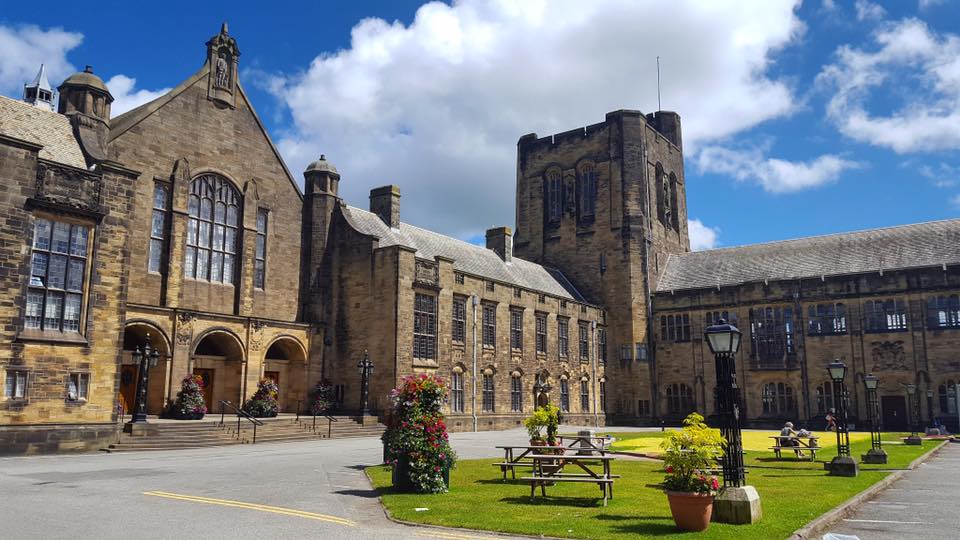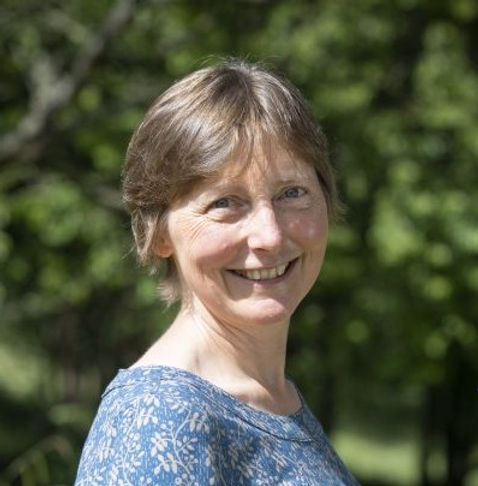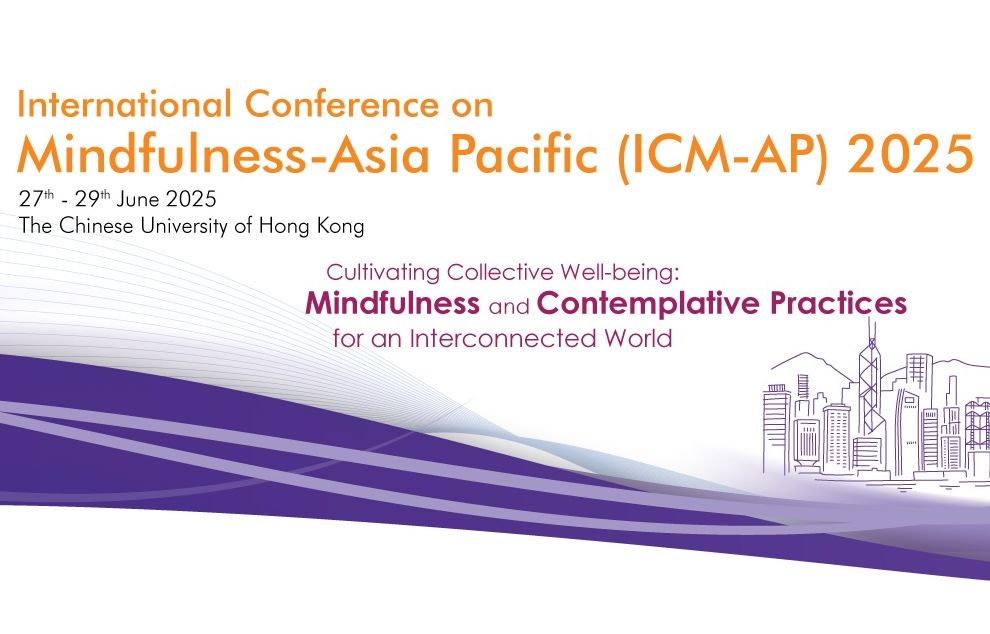By Dr. Elsa Ngar-sze Lau
“A college situated on a mountain cannot remain concealed.
It is a dream, a vision.
Welsh grandfathers illuminate the darkness amidst ancient, rugged stones.
Persevere resolutely through the frigid winter and the sweltering summer.
A glimmer of light exists, a passion for learning, illuminated by the radiance of wisdom.
In their minds, they envision a brighter future, a more prosperous life for their children . . .
. . . women by the radiant hearth, our valiant grandmothers nurturing children . . .”
At the opening ceremony of The International Conference on Mindfulness, held on 2 August, 2024, in the 500-seat lecture hall, Bethany, a volunteer from the Mindfulness Network, recited “The College on the Hill,” a poem by Gwen Thomas, in Welsh. This poem narrates the story of local ancestors in Wales, honoring the stone miners of the 19th century and their vision to provide education for future generations. Notably, some of their earnings were donated to establish Bangor University, a college situated in the mountains of northern Wales, which was founded in 1884.
From alleviating personal stress to fostering a more equitable and compassionate world
Bangor University has been engaged in the teaching and research of mindfulness for over two decades. Mark Williams, a professor of clinical psychology and a co-founder of the esteemed “Mindfulness-based Cognitive Therapy Course (MBCT)” who currently holds the position of honorary professor at the University of Oxford, UK, has dedicated many years to teaching and research at Bangor University and established the Center for Mindfulness Research and Practice.

Professor Rebecca Crane, a key organizer of this symposium, noted in her opening address that the research and practice of mindfulness over the past thirty years have yielded significant outcomes, transitioning from a model centered on personal health to becoming integrated into mainstream society, exemplified by the fact that MBCT has been recognized as one of the approved treatments by the National Health Service (NHS) and has had a profound impact.
Rebecca emphasized that this is a pivotal moment for rebalancing on multiple levels, advocating for a broader and more inclusive approach that transcends individual physical and mental health. She believes that all attendees aspire to a fairer, more compassionate, and empathetic world—one that honors all living beings and acknowledges our inherent interdependence and coexistence with the natural environment. She encourages us to contemplate the next steps, such as how to expand the capabilities of mindfulness to foster greater prosperity in the world, and how we can confront bias and initiate efforts to address this within our communities. From the individual to the societal context, the wisdom of mindfulness enables us to navigate our present intelligently, recognizing the sources of stress, pain, and disconnection within ourselves, as well as what fosters relaxation and connection at the community and systemic levels.

Five years ago, the Bangor University team began investigating the theme of this conference, which centers on mindfulness in a changing world. They are focused on how mindfulness can assist society in confronting significant challenges related to economic, political, and environmental issues. The conference is structured into five thematic segments, including:
- scientific inquiry, theoretical frameworks, and educational methodology;
- reflection, philosophy, and spirituality;
- social, cultural, and systemic approaches;
- Grassroots initiatives, pragmatic applications, and innovation;
- Politics, environmental issues, and international initiatives.
In addition to over a hundred oral and poster academic presentations, the five-day seminar featured keynote addresses, panel discussions, research reports, and extensive meditation practice sessions. Rebecca underscored the significance of evidence-based mindfulness research, while noting its incompleteness. The first keynote address was delivered by Professor Sona Dimidjian from the United States, who presented her scientific findings on mental health and mindfulness accumulated over the years.
The second keynote address was given by the esteemed insight meditation instructor Catherine McGee, who discussed how spiritual practice can expand our perspectives to address a changing world. The third keynote address was presented by Rhonda Magee, an African American law professor from the United States, who explored the role of mindfulness in fostering an equitable society. The fourth keynote address was delivered by Professor Amit Bernstein, who shared his research on Mindfulness-based Trauma Recovery for Refugees (MBTR-R).
Additionally, the conference organized round-table discussions for each theme. The most significant aspect for the author occurred during the “Politics, Environment and Global Initiatives” session on the final day, which vigorously advocated for the integration of mindfulness into public affairs and the response to various crises. Participants in the roundtable included Jamie Bristow and Richard Edwards from the Mindfulness Initiative, Roy Ellis, a prominent advocate for the mindfulness movement in Wales, and Cathy-Mae Karelse, who actively promotes mindfulness practices among ethnic minorities.

To address the climate change crisis, plant-based lacto-vegetarian meals were offered at the conference’s buffet lunch, tea, and dinner. In summary, the conference aims to reinforce the moral and ethical imperatives of our time, honor all professional expertise, provide unique insights, and collaboratively foster a space for mutual support. In her opening speech, Rebecca once again invited participants to join Bethany as she guides the audience in meditation for a few minutes in Welsh, attuning to the language of the land and connecting with their ancestors.
Revert to ancestral wisdom and establish a connection with forebears and the natural world
The conference featured numerous workshops employing diverse practice methods, with each mindfulness workshop exhibiting distinct characteristics. For instance, Vidyamala Burch, who experienced a spinal cord injury in her youth, shared her journey in developing a mindfulness-based pain management course and founded The Breathworks Foundation charity organization. Additionally, Martine Batchelor, a prominent female Vipassana teacher with extensive experience in Korean Zen practice, guided participants in exploring the concept of “feeling tone.” She emphasized the importance of identifying emotions and feelings, such as anger and impatience, while encouraging practitioners to consider their experiences prior to labeling them. Furthermore, she imparted techniques for experiencing impermanence without attachment during practice. Martine also invited us to appreciate the effort that goes into the practice, to enjoy the clarity and joy that comes with it, and finally to be grateful for all the potential that exists in us.
In the Relationships Meditation workshop, Rossalie Dores asked us to share with an unknown participant what had started them on the meditation. In the full day meditation workshop, Catherine McGee and Rhonda Magee led the group to connect with our ancestors and the earth in a standing position, and horizontally with people from different countries and regions. They emphasised that the body is an important vehicle for connecting with our ancestors, the earth and the universe, and finally invited us to reflect on our personal path of practice, to listen to our heart’s call and share it with the two participants. Finally, we were invited to reflect on the path of personal practice, listen to the call of the heart and share with the two participants.
Practice during periods of multiple crises (polycrisis)
For the author, each keynote address serves as a profound source of insight for meditation researchers and practitioners alike. Professor Kabat-Zinn’s closing remarks are not only memorable but also serve as a crucial wake-up call. Recently celebrating his 80th birthday, Professor Kabat-Zinn is currently an emeritus professor at the University of Massachusetts. Below is an excerpt from his address. He emphasizes that the societal challenges we face today are different from those he encountered when he first began teaching Mindfulness-Based Stress Reduction (MBSR) courses in 1979. In the present day, we are confronted with a multitude of crises and complex information networks. Since the 1990s, the global population has doubled, polar ice caps have experienced significant loss, and two-thirds of the human population faces challenges related to water usage for agriculture. It is imperative for humanity to take responsibility for the planet. This moment calls for a collective awakening to our true nature. Mindfulness transcends mere personal practice; it is not solely about reducing individual blood pressure. We must address the issues stemming from our attachment to the self, including the notions of I, me, and mine.
A renowned Zen koan illustrates a profound lesson. During the Tang Dynasty in ancient China, Zen Master Mazu Daoyi, while still a student and not yet enlightened, was engaged in meditation one day. His teacher inquired about his activity, to which Mazu responded that his aim in meditation was enlightenment. In response, the teacher found a stone and began to rub it. When Mazu asked what the teacher was doing, the teacher replied that he intended to polish it into a mirror. In that moment, Mazu grasped that enlightenment could not be attained solely through meditation. This reflects the illusion that subtly suggests reaching a specific destination or state. The entirety of the Zen tradition is non-dualistic. What, then, is mindfulness? It is neither binary nor compartmentalized. You are the very essence of what you seek. There exist countless paths to this realization, not merely a singular route.
Mindfulness is not an individual experience; it is inherently linked to others
Life is indeed fleeting. There is no assurance that you will take another breath or even participate in the next seminar. While we immerse ourselves in the beauty of meditation during this seminar, others are enduring suffering in the southern hemisphere. It is a grave ignorance to inflict harm upon the innocent. Someone inquired, “What is mindfulness?” Beyond the pure awareness discussed by many at this conference, mindfulness is inherently relational, reflecting our interconnectedness as human beings. Mindfulness is neither a commodity for sale nor a concept that is perpetually discussed. Imagine if the United Nations embraced mindfulness and if all Olympic athletes incorporated it into their training. Many speak of mindfulness, yet often it is mere rhetoric. They lack the time to engage in practice or meditation. Its significance cannot be overstated; it permeates every aspect of life, with no moment devoid of practice. The Buddha has illuminated the Dharma, revealing the nature of reality, the principles governing existence, the Four Noble Truths, and the essence of suffering. Dharma represents the natural laws of the universe that we must uncover and navigate. How do we govern ourselves in our daily lives? If you forfeit your moment, perhaps at the time of death, you forfeit the entirety of existence; this encapsulates mindfulness, the practice of authentic living.
Otto Scharmer’s research indicates that 69% of individuals are willing to sacrifice a significant portion of their income to assist others. As Homo sapiens, we possess an inherent desire to connect with one another. Let love transcend your physical posture and enhance the beauty of awareness. You are a blossoming flower, and we are all part of this floral tapestry. The fate of humanity hinges on the awakening of our true essence; the resurgence of mindfulness has been a phenomenon in the West for merely forty years, yet it is flourishing in mainland China. When they embrace Mindfulness-Based Stress Reduction (MBSR), they are engaging with a practice that is, in fact, 1,500 years old.
If China reconnects with its wisdom traditions, it could transform the world. China boasts a profound heritage, while the West has only fifty years of wisdom to draw upon. The slave trade, which spanned 500 years, took place in Europe and the United States, where educated Europeans often failed to recognize Africans as fellow human beings. This reflects a legacy of greed, hatred, and ignorance. Yuval Noah Harari, who examines the history of Homo sapiens, is a dedicated meditator; our species flourished in Africa 50,000 years ago and contributed to the extinction of giant mammals in Australia.
We possess the unique ability to narrate stories, a skill that chimpanzees lack. As human beings, managing ourselves is the basic call of this moment, which unfolds beautifully in our gathering. There is no need for subservience; we are all learning from one another, and everything is interconnected. All life on Earth is interwoven: billions of years of plankton, the plant kingdom, oceans, oxygen, blood, and porphyry ring structures. We are all extraordinary beings, already enlightened; whether we sit on a cushion or engage in our daily lives, there is no distinction. This is the full dimension of human nature, with collective intentionality, and very fortunately we are born with this awareness, and here I bow deeply to your love.

Before the conclusion, Rebecca invited Dean Francis, an African-American mindfulness instructor and the forthcoming host of the mindfulness network, to recite one of his poems in Welsh to conclude the seminar:
Divine Sparks
A Multi-faceted diamond of differentness,
From the internal to way beyond,
Just look up,
Just look in,
Your certain to see its beauty bling.
A multi-faceted diamond of differentness
Each face is now all much the same,
Nothing to lose,
Nothing to gain,
just imperfectly cut
Again
and again.
A multi-faceted diamond of differentness
Each face connected by the night’s sky
Just look up,
Just look in,
You’ll be certain to hear a compassionate warrior sing,
let me shine,
Let me grin.
I’m here, I’m there
I’m connected to everything!
The International Conference on Mindfulness (Asia-Pacific Region) will be held at the Chinese University of Hong Kong from 25 to 30 June 2025. Please visit the following website and we look forward to your participation!
Acknowledgements: The author of this article would like to thank Daisy, Helen, Herman, Kevin, Samantha for their valuable comments on this article. The author is grateful to the translation and proofreading of the article by Donald Wong.


